Glaucoma Articles
This is the place for the latest information about our work here at Glaucoma Research Foundation and for current events in the world of eye health. All breakthroughs and insights are made possible through the dedication of researchers, and through the continued financial support and active involvement of the community.
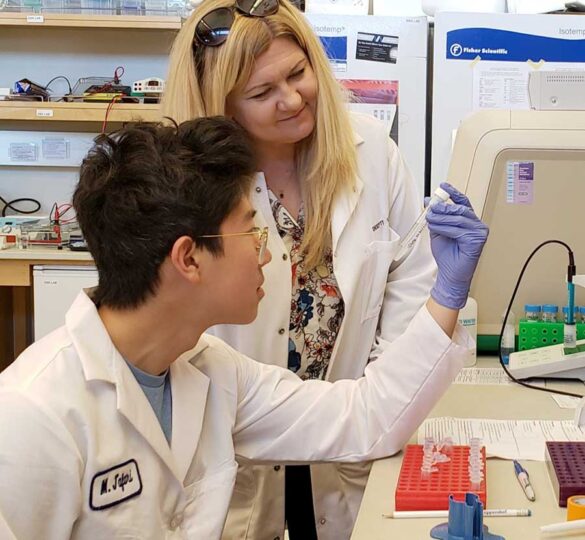
Glaucoma Research Foundation Awards 2020 Shaffer Prize to Dorota Skowronska-Krawczyk, PhD
For her research project “Eliminate to Protect,” Dr. Dorota Skowronska-Krawczyk from the University of California, San Diego was awarded the 2020 Shaffer Prize for Innovative Glaucoma Research.

New Medication Delivery Systems for Glaucoma
Learn about novel approaches to drug delivery currently being developed with an aim to improve medical therapy for glaucoma patients.

New Treatment Options for Managing Glaucoma
Two new categories of glaucoma medication eye drops have shown to lower eye pressure significantly and compare well to other established medications.

My Glaucoma Story: Finding the Path from Patient to Vision Advocate
Trinh Green has faced many vision challenges in her life. But that hasn’t discouraged her. Instead, it’s inspired Trinh to become a vision advocate.

Catalyst for a Cure Scientists Show Progress and Collaboration
This research progress report summarizes progress from the first year of the Catalyst for a Cure Vision Restoration Initiative, launched by Glaucoma Research Foundation in 2019.
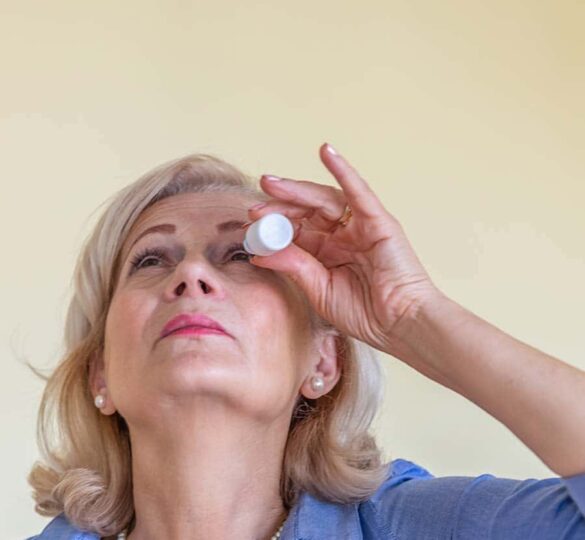
Speak Up for Comfortable Glaucoma Drops
If you have side effects from a glaucoma medication, be sure to tell your doctor, who can adjust your treatment plan based on your needs.

Tips and Advice for the Glaucoma Patient
A glaucoma specialist shares her words of advice.
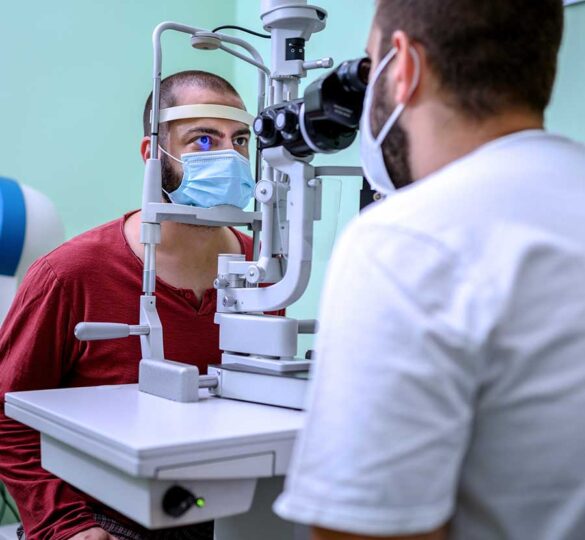
What’s SLT Actually Like? – A Patient’s Perspective
A glaucoma patient shares his experience with having selective laser trabeculoplasty (SLT) — a laser treatment for open-angle glaucoma that lowers eye pressure.

The Quest to Restore Lost Vision and Cure Glaucoma
Although lowering eye pressure can help slow or stop glaucoma progression, there are currently no therapies to regenerate lost nerve cells and help patients that have already lost vision.
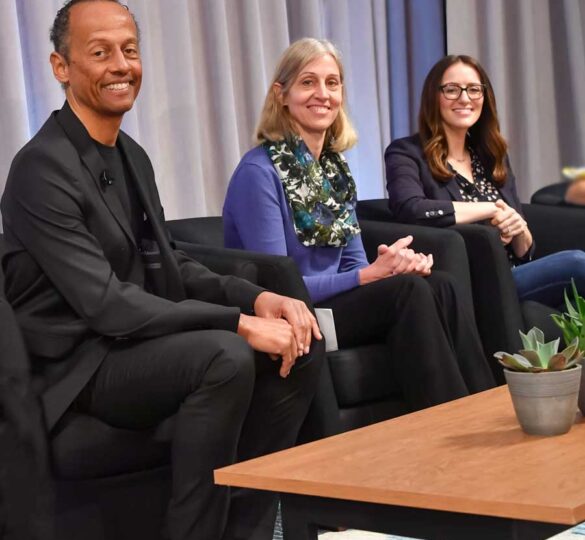
My Glaucoma Story: Rebecca Vilendrer
Rebecca was diagnosed with glaucoma in her early thirties. “I had no idea that I should even be going in to have my eyes checked for glaucoma,” she says.

Personal Story: Hannah Eckstein
Hannah Eckstein was diagnosed with glaucoma just a few months after she was born. Now she is 17 and starting college.

A Father’s Gift Honors His Son’s Achievements
“I’ve been inspired by Paul’s remarkable courage and perseverance to not let his glaucoma keep him from leading a full life,” says his father.
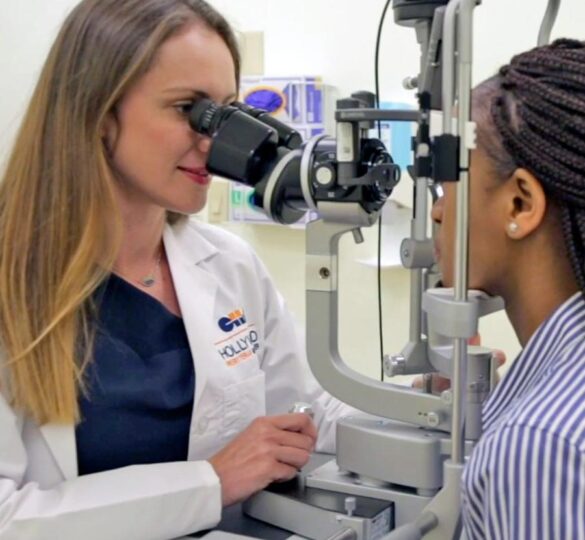
Combination Surgery: Treating Cataracts and Glaucoma Together
Cataracts are like wrinkles — everyone gets them when they get older. When people with glaucoma get cataracts, it’s the perfect opportunity to treat both problems at once.

Personal Story: Igor Leal
Igor Leal is a talented singer-songwriter living with glaucoma.

Q&A: New Medications for Glaucoma
In this “Questions and Answers” article, learn about new glaucoma medications available in 2019, how they’re different from existing treatments, and their potential side effects.

The Path To A Cure for Glaucoma
Every day, glaucoma researchers work to better understand and find safer, more effective ways to treat this debilitating disease.

Stem Cell Therapy for Glaucoma – Are We There Yet?
Stem cell therapies are getting headlines for their potential to cure diseases, including those that affect vision. But an important message is missing: stem cell therapies are not yet proven to be safe and effective for your eyes.

UK Research Study Reports Laser-based Glaucoma Treatment is More Successful and Cost-effective
The published UK study suggests Selective Laser Trabeculoplasty should become the principal method for treating patients with glaucoma.

FDA Approves Rocklatan Eye Drop for Open-Angle Glaucoma
The FDA has approved Rocklatan, a once-daily IOP-lowering eye drop for patients with open-angle glaucoma, Aerie Pharmaceuticals announced in a press release this week.
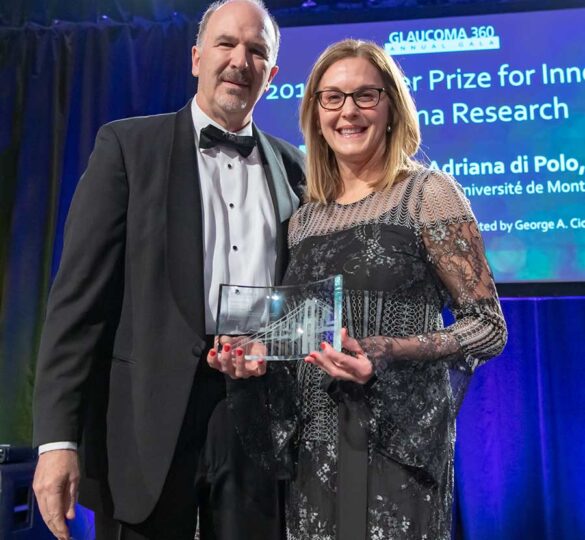
Dr. Adriana Di Polo Awarded the 2019 Shaffer Prize from Glaucoma Research Foundation
Dr. Di Polo’s laboratory investigated the hypothesis that insulin can improve the survival and function of injured retinal ganglion cells and may be viable as an innovative glaucoma treatment.
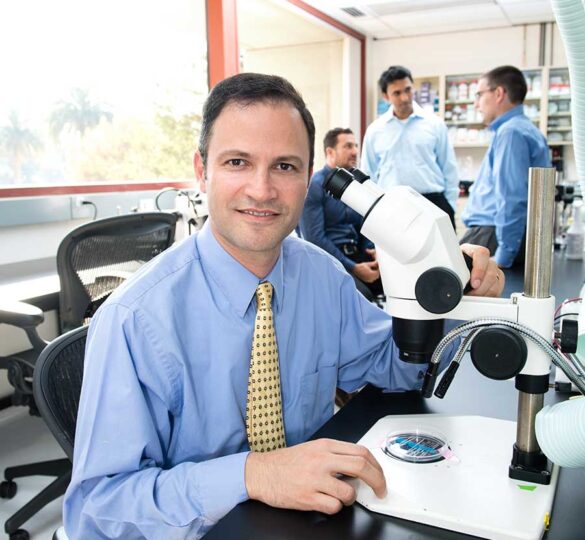
Catalyst for a Cure: A Clear Path to Vision Restoration
For the first time, thanks to improvements in how we measure the disease, researchers are studying and testing new therapeutic candidates for neuroprotection, neuroenhancement, and visual restoration.
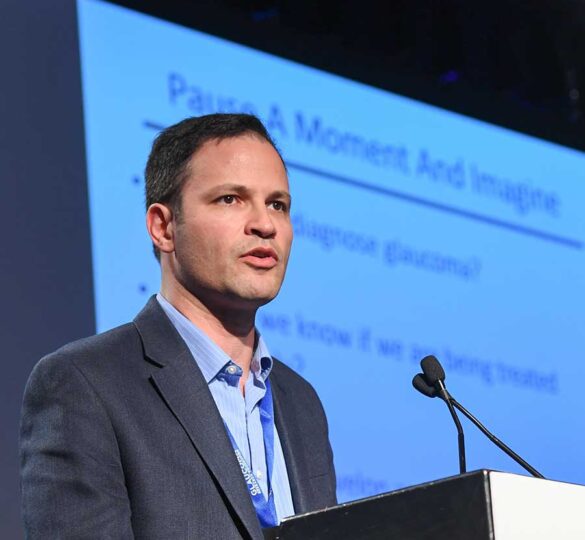
2018 Weston Lecture by Jeffrey Goldberg, MD, PhD
Listen to the 2018 Weston Glaucoma Research Lecture delivered by Jeffrey Goldberg, MD, PhD, a principal investigator in the Catalyst for a Cure.
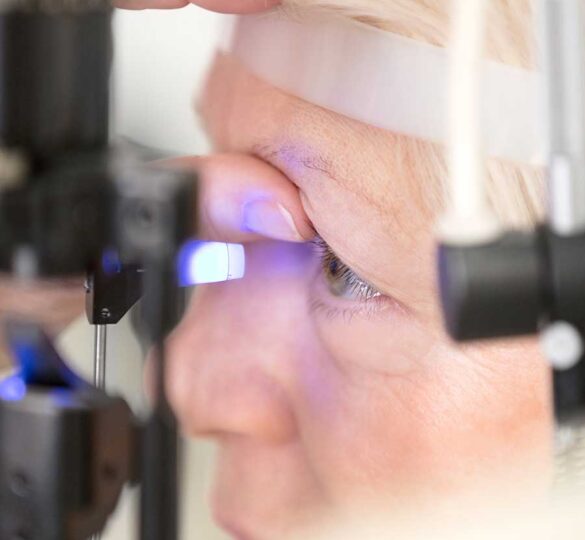
Rare Forms of Glaucoma
Although primary open-angle glaucoma is the most common type of glaucoma, there are many other types of eye disorders that fall under the spectrum of glaucoma.
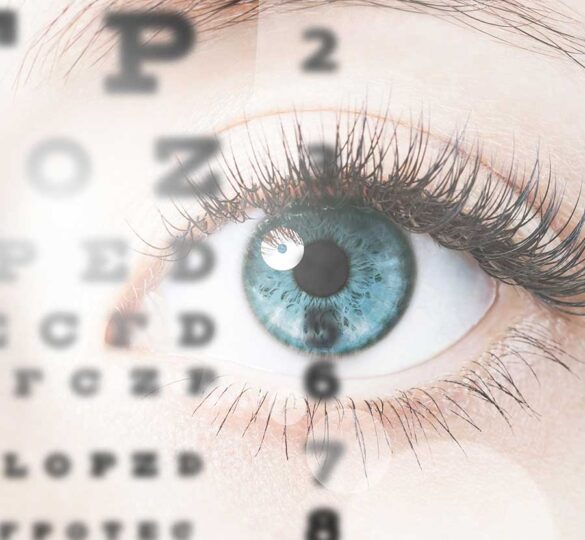
Glaucoma and Reading Ability
What can be done to make reading easier for those with glaucoma? You can start by trying some things on your own.
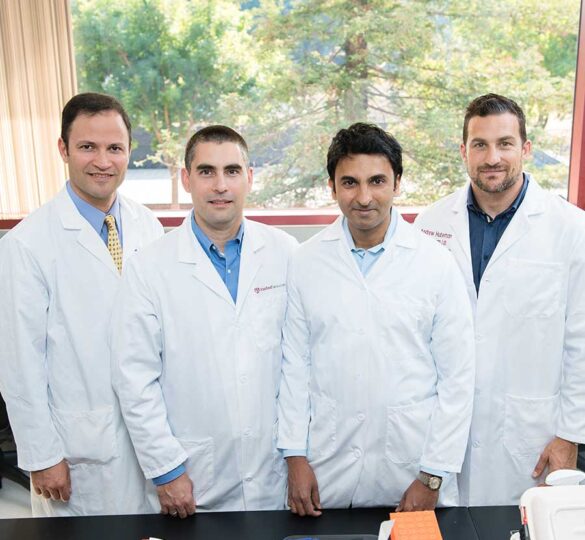
New Priorities for Glaucoma Research
New approaches to treating, managing, and even curing glaucoma are essential to patients and caregivers. Researchers are actively working to advance the field in several key areas.